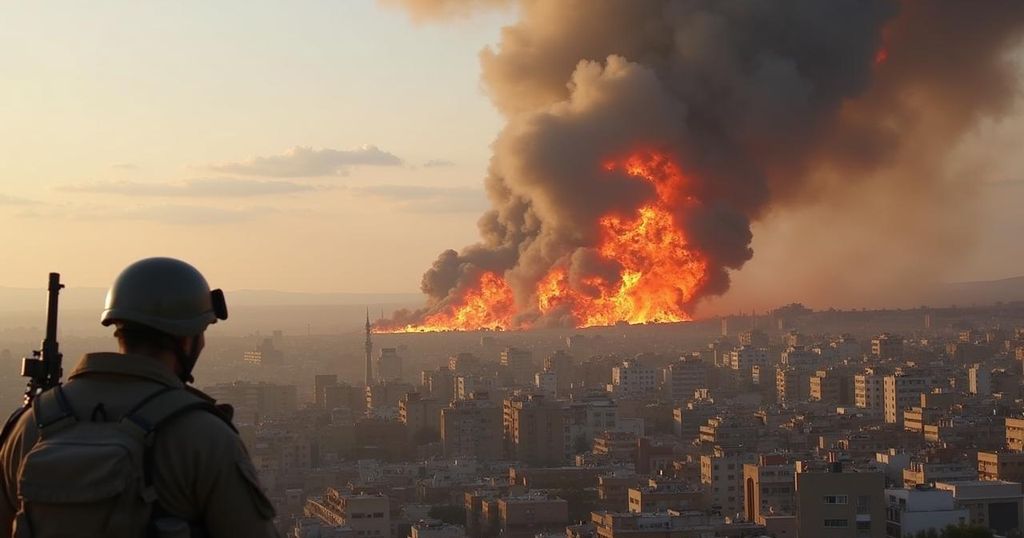Escalating tensions in the Middle East, highlighted by Israeli airstrikes in Gaza and Lebanon, have resulted in significant casualties, including children. Hezbollah prepares for a prolonged conflict following the loss of leadership, while international responses grow including calls to suspend EU-Israel trade agreements and criticisms of UN involvement. The situation remains fluid as military operations continue from both sides, reflecting deep-rooted regional complexities.
The ongoing conflict in the Middle East continues to escalate, particularly between Israel and Hezbollah, as regional tensions rise following Israeli airstrikes targeting Hezbollah positions in Lebanon and significant strikes in Gaza. Recent Israeli airstrikes on a school in Gaza resulted in the deaths of at least 20 individuals, including children, as reported by local hospitals. In response to the significant loss of leadership, Hezbollah is reportedly preparing for a protracted conflict against Israel, utilizing new military directives to coordinate both rockets and ground operations. Moreover, Israeli military actions have targeted approximately 200 sites associated with Hezbollah, leading to increased casualties on both sides. The Israeli Defense Forces (IDF) have maintained a focus on precision strikes designed to eliminate perceived threats from Hezbollah, while tensions remain high over Israel’s calls for the United Nations peacekeeping force in Lebanon to withdraw. France has rejected proposals for the withdrawal of UN forces, emphasizing the necessity for peacekeeper protection, while Spain’s Prime Minister has advocated for the European Union to suspend its free trade agreement with Israel due to ongoing violence. These developments underscore the volatility of the region as international leaders respond to the rising conflict.
The recent escalation in the Middle East conflict, particularly between Israel and Hezbollah, has historical roots in longstanding tensions involving territorial disputes, military confrontations, and political dynamics within the region. Israel’s military operations have intensified in response to perceived threats from Hezbollah, a significant player in Lebanon backed by Iran. The complexity of these relationships is enhanced by international involvement, such as the role of the United Nations peacekeeping forces in Lebanon and the diplomatic positions of various countries, including France and Spain. The humanitarian impact of military actions in Gaza and Lebanon has prompted calls for international scrutiny and response, complicating an already intricate geopolitical landscape.
The situation in the Middle East remains precarious as violence escalates between Israel and Hezbollah, with significant loss of life reported in both Gaza and Lebanon. The IDF’s targeted operations against Hezbollah and the subsequent calls for international intervention highlight the urgent need for resolution amid growing global concern over the humanitarian implications of the conflict. Diplomatic responses from European leaders suggest a potential shift in international policy towards Israel, reflecting broader implications for regional stability.
Original Source: www.deccanherald.com






